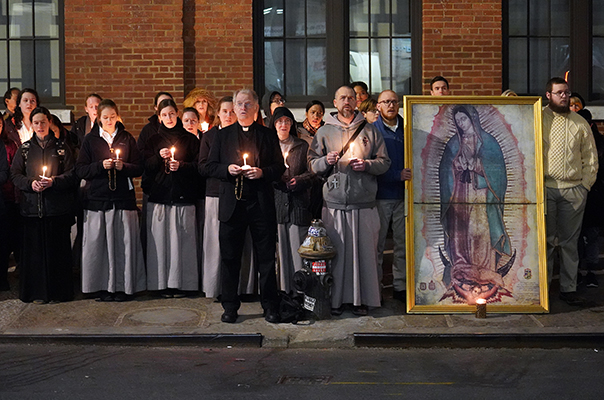
By Alexandra Moyen
ROSEDALE — Planned Parenthood of Greater New York announced Tuesday they are disassociating themselves from controversial founder Margaret Sanger.
The organization plans to change the name of their building to “Manhattan Health Center” and change a street sign — currently named “Margaret Sanger Square” — near the clinic.
In a July 22 press release, PPGNY said the move was the “first of many” shifts within the organization to address Sanger’s complicated legacy of eugenics and racism.
The organization wishes to have more “long overdue dialogues” addressing problems within communities of color through their three-year Reviving Radical initiative, according to the release.
PPGNY Board Chair Karen Seltzer wrote the removal of Sanger’s name is both “necessary and overdue” and acknowledges the organization’s “reproductive harm” within communities of color.
“Margaret Sanger’s concerns and advocacy for reproductive health have been clearly documented, but so too has her racist legacy,” Seltzer wrote. “There is overwhelming evidence for Sanger’s deep belief in eugenic ideology, which runs completely counter to our values at PPGNY.”
In 1912, she began writing a sexual education column in The New York Call, a socialist newspaper. She worked as a nurse in poor immigrant neighborhoods and treated many women who had back-alley abortions or tried to abort pregnancies themselves. In a published article she sent to the Birth Control Review in 1919, she wrote that “No woman can call herself free until she can choose consciously whether she will or will not be a mother.”
In 1916, Sanger opened the first birth control clinic in America in Brownsville, Brooklyn.
Her article “The Eugenic Value of Birth Control Propaganda,” published in 1921, showed her birth-control intentions came from her belief in eugenics, which is the idea that a human species or race can be improved by discouraging those deemed unfit or having undesirable traits from having children.
Sanger’s clinics and speeches about birth control targeted impoverished immigrant neighborhoods and black communities through the “Negro Project.”
Additionally, she accepted an invitation to talk to the women’s branch of the Ku Klux Klan and supported the sterilization of the mentally ill and impaired.
In 1934 she praised the Nazi’s sterilization program in Germany stating: “I admire the courage of a government that takes a stand on sterilization of the unfit and second, my admiration is subject to the interpretation of the word ‘unfit.’ ”
The program allowed the forced sterilizations of anyone suffering from genetic blindness and deafness, manic depression, schizophrenia, epilepsy, congenital feeble-mindedness, Huntington’s chorea (a brain disorder), and alcoholism.
In her “The Eugenic Value of Birth Control Propaganda” article, she called eugenics a defensible practice because it was “suggested by the most diverse minds as the most adequate and thorough avenue to the solution of racial, political and social problems.”
Leaders of the pro-life community, who have been battling Planned Parenthood for decades, were dubious of the name change.
“They’re changing the name of the building to the Manhattan Health Center. That makes it sound like wonderful things are taking place there but they’re still aborting children,” said Catherine Donohoe, president of The Bridge to Life, a pro-life organization in Queens that assists pregnant women and families. “Evil is still evil, no matter what name it has.”
Donohoe wondered why it took so long for Planned Parenthood to admit Sanger’s history.
“She was a racist from the very beginning,” she said.
Donohoe has taken part in monthly Masses outside Planned Parenthood’s Margaret Sanger Center organized by the group Franciscan Friars of the Renewal. Led by Father Fidelis Moscinski CFR, the participants march on the first Saturday of the month from Old St. Patrick’s Cathedral to the Sanger building. Mass is then celebrated outside.
“We are always met with counter-protesters,” Donohoe said. “They yell and scream at us during the consecration.”
